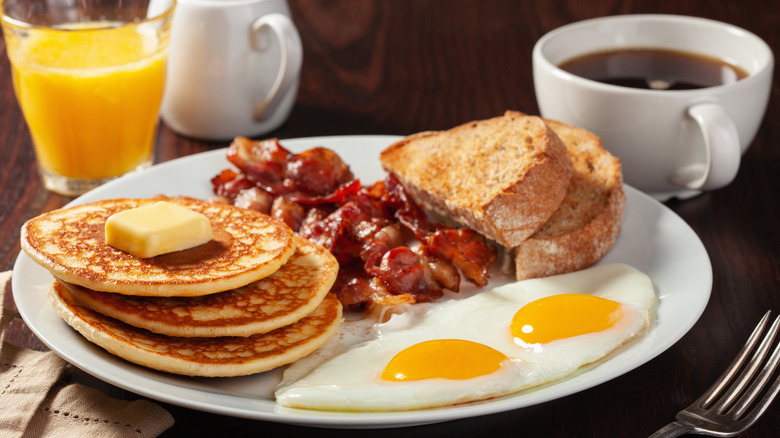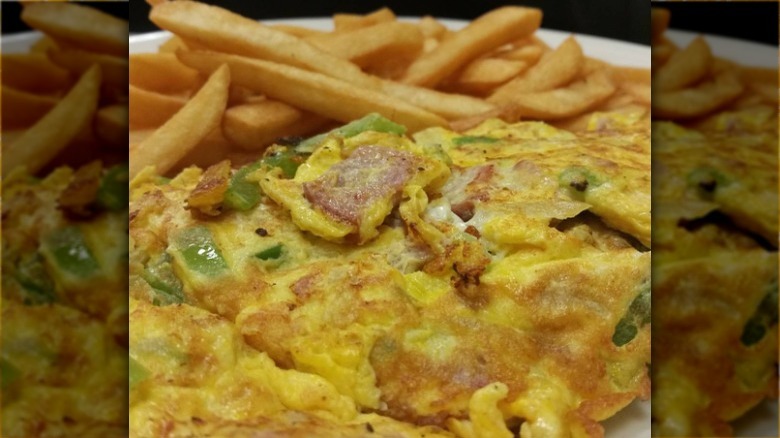What It Means To Order Eggs Cowboy With Spurs Style
If you suddenly woke up tomorrow and, instead of heading to your usual workplace you found yourself in a vintage 50s-style diner with a uniform on, panic might start to set in pretty quickly. Not just because you have a vague inkling that you've time traveled, or that you've never worked in food service before, but because everyone seems to be speaking gibberish. "Adam and Eve on a raft," one waiter might call out, while a short-order cook rings a bell and says "heart attack on a rack," another waiter scurrying over to pick up the plate of what thankfully looks like biscuits and gravy and not the result of a tragic cardiovascular event (via Sarasota Herald-Tribune).
They're not speaking gibberish — it's diner lingo. Diner lingo was a popular way for restaurant workers to talk about the food their customers were ordering and to relay that information to the cooks in back, while putting a fun spin on things, only sometimes actually shortening the names of menu items for convenience. According to the Utica Observer-Dispatch, diner lingo was most popular from the 1920s to '70s, and though it's mostly faded from use, you might still hear employees using some slang terms from those days. Just think about ordering Waffle House hashbrowns scattered, smothered, and covered — that's diner lingo. So what does it mean if you hear someone in a diner shouting "eggs, cowboy with spurs style" to the kitchen?
These cowboys are eating well
If you hear someone order eggs "cowboy with spurs" style at a diner, you know they're in for a hearty breakfast. That's because if you translate this diner lingo, it turns out the person ordering is actually asking for a Western omelet (also known as a Denver omelet) with french fries on the side (via Taste of Home). Western omelets are filled with ham, onion, bell pepper, and sometimes cheese.
What did cowboys really eat in the old west, though? Some think that Denver omelets might have actually been created by cattle drivers on the go, originally eaten as a sandwich (per Brittanica). Ranchers often ate salt pork, bacon, and other cured meats out on the range because they didn't spoil as fast as fresh meat, so that could be where the ham comes into the omelet equation. Potatoes were commonly enjoyed, too, though they wouldn't resemble the french fries you can get at any diner today (via History Hit).
But does it matter if cowboy and spurs-style eggs don't have anything to do with actual cowboys? We don't think so, and if you look at any diner lingo dictionary you'll soon realize that trying to make sense out of the many nicknames given to common breakfast foods by bored diner employees 50 or more years ago is an exercise in futility...but an admittedly fun one nonetheless.

